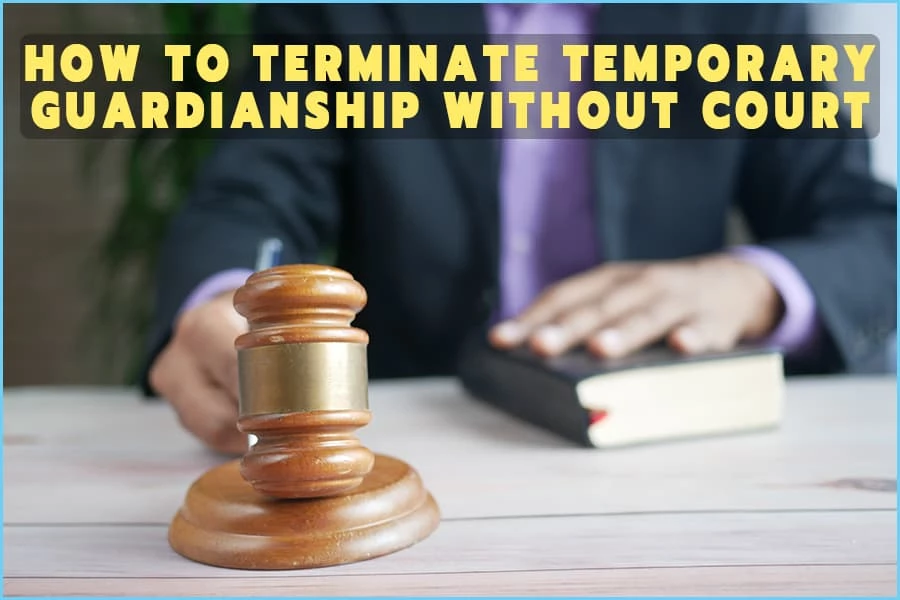How to Get Guardianship of a Child Without Going to Court
Guardianship is a legal arrangement that grants an individual the responsibility of caring for a child who is not their own. It may become necessary when a child’s parents are unable to properly care for them due to various circumstances. In some cases, guardianship can be established without going to court, providing a more straightforward process for those seeking to take on this important role in a child’s life. In this article, we will explore different avenues to obtain guardianship without court involvement and the steps involved in each method.
Immediate Temporary Custody
Immediate Temporary Custody is granted by a probate court to an adult relative, attorney for a minor child, or an adult with physical custody of the child when returning the child would jeopardize their safety or remove them from the court’s jurisdiction. This arrangement typically lasts for five business days, after which a second hearing on temporary custody with notice to all parties is conducted.
Temporary Custody of a Grandchild or Dependent Relative
For those seeking custody of a grandchild or another dependent relative, an application must be filed with the probate court, and a hearing is usually granted within 30 days. Prior to the hearing, a social worker from the Department of Children and Families (DCF) may conduct a home visit and assess the custodial relative’s ability to care for the child. If the social worker determines that the relative is capable, the court will likely appoint them as Temporary Custodian. This temporary custody remains in effect while DCF investigates whether the parents should be removed as guardians and the relative should be appointed as the child’s guardian.
Standby Guardian
A Standby Guardian can be established without going to court by having the child’s parents sign a document available from the probate court, consenting to the grandparent or relative taking guardianship. The standby guardianship comes into effect when specific triggering events occur, such as the parents’ temporary inability to care for the child due to physical or mental disability, rehabilitation program residency, short jail term, or other absence from home. Standby guardianship typically lasts up to one year, and in case of the parents’ death, it can extend for an additional 90 days to allow the standby guardian to request permanent guardianship from the probate court.
Removing Child’s Parents as Guardians
When a child’s parents are unable to adequately care for them, an application can be filed in probate court to have the parents removed as guardians. The parents’ rights can be terminated with their consent, in cases of abandonment, denial of necessary care, or if the child has suffered intentional injuries. If there is no available family member, the DCF can be appointed as the child’s guardian.
Termination of Parental Rights
Termination of parental rights is a final court order that completely severs the legal relationship between the parents and the child. The court may terminate parental rights under certain conditions, such as the parents’ consent, abandonment, lack of ongoing relationship, neglect, failure to rehabilitate, or criminal acts committed against the child. If one parent’s rights are terminated, the other parent becomes the sole parent and legal guardian. If both parents’ rights are terminated, the court will appoint a guardian or statutory parent for the child.
Getting Appointed as Guardian
The probate court may appoint a guardian after DCF conducts an investigation into the physical, mental, social, and financial conditions of the parents and the grandparents or relatives applying for guardianship. If the court grants guardianship, it will issue a written decree removing the parents as guardians and appointing the applicant as the new guardian. The guardianship may include visitation rights for one or both parents and other family members. It remains in effect until the child turns 18 or until the parents apply to have their guardianship rights reinstated.
Co-Guardianship
In cases where the child has only one parent, a grandparent or relative can become a Co-Guardian, sharing legal responsibility for the child’s care with the remaining parent. The probate court grants co-guardianship after a DCF investigation and hearing.
Adopting a Grandchild or Other Relative
Adoption may be considered if a grandparent or relative wishes to take complete and permanent responsibility for the child, eliminating the possibility of legal interference from the child’s birth parents. To adopt a child, the birth parents’ rights must be terminated, and an adoption application must be filed with the probate court along with an adoption agreement. DCF will conduct an investigation to determine the applicant’s suitability as an adoptive parent, and if the child is 12 or older, their consent is also required.
Resources for Kinship Caregivers
For those assuming the role of a kinship caregiver, there are resources available to provide support and assistance:
- AARP has a State Fact Sheet for Grandparents and Other Relatives Raising Children, offering information on benefit programs and emotional support.
- The “Connecticut Resource Guide for Grandparents Raising Grandchildren” lists various resources available for custodial grandparents or relatives.
Conclusion
Obtaining guardianship of a child without going to court can be a viable option in various circumstances. Immediate Temporary Custody, Standby Guardian arrangements, or terminating parental rights are some avenues that allow individuals to assume guardianship responsibilities. Understanding the process and the available resources can help ensure the best outcome for the child’s welfare and stability.
FAQs
1. Can a grandparent become a Standby Guardian? Yes, a grandparent can become a Standby Guardian by having the child’s parents sign the appropriate documents provided by the probate court.
2. How long does Standby Guardianship last? Standby Guardianship typically lasts up to one year but can end sooner if the parents’ absence or illness resolves before the year is up.
3. What is the purpose of Termination of Parental Rights? Termination of Parental Rights is a final court order that severs the legal relationship between the parents and the child, allowing for adoption or appointing a new guardian.
4. How can someone get appointed as a guardian? The probate court asks DCF to conduct an investigation to assess the applicant’s suitability, and if granted, the court will issue a written decree appointing the applicant as the guardian.
5. Can a relative become a Co-Guardian if the child has only one parent? Yes, a relative can become a Co-Guardian, sharing the legal responsibility for the child’s care with the remaining parent.







